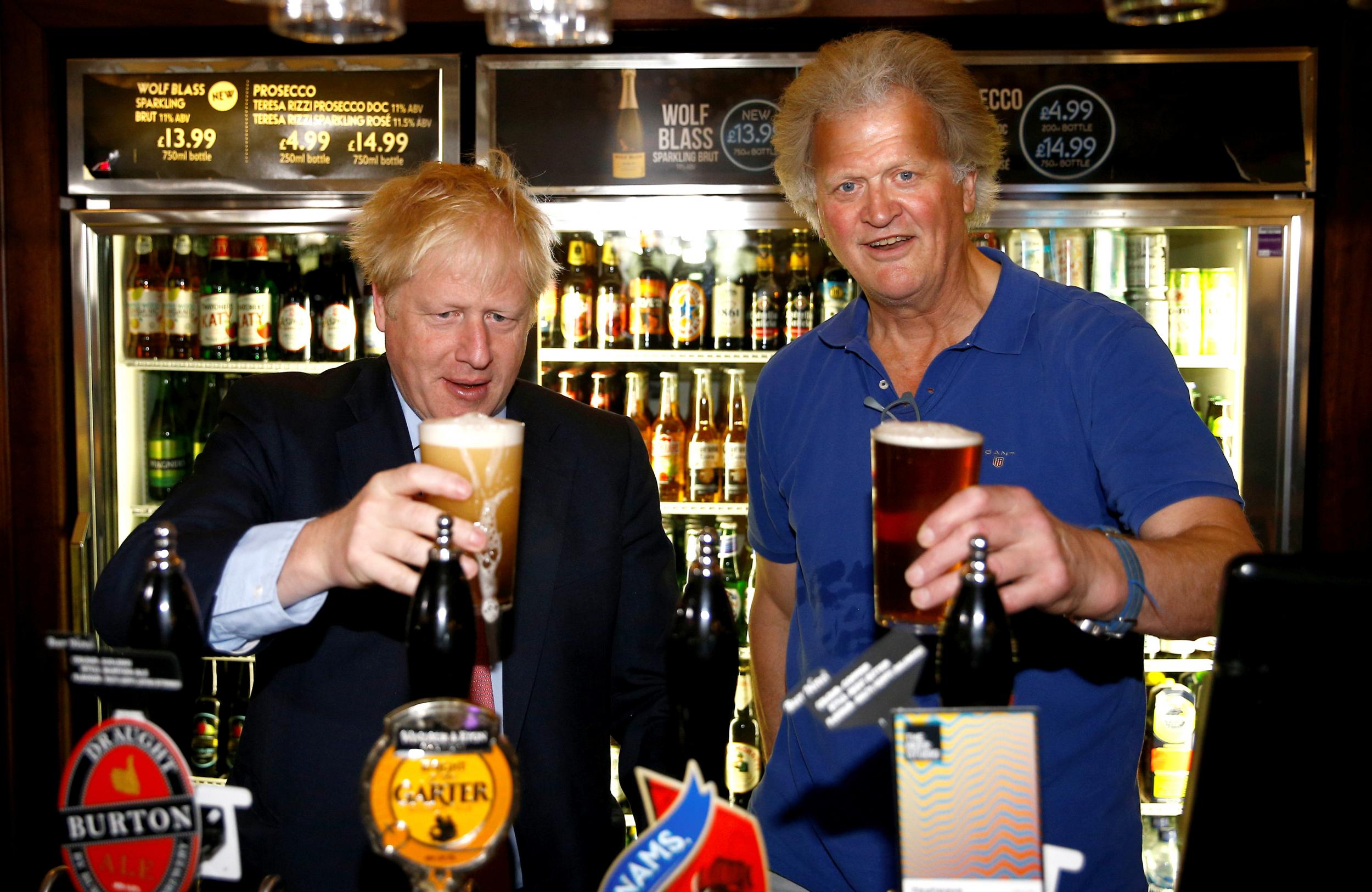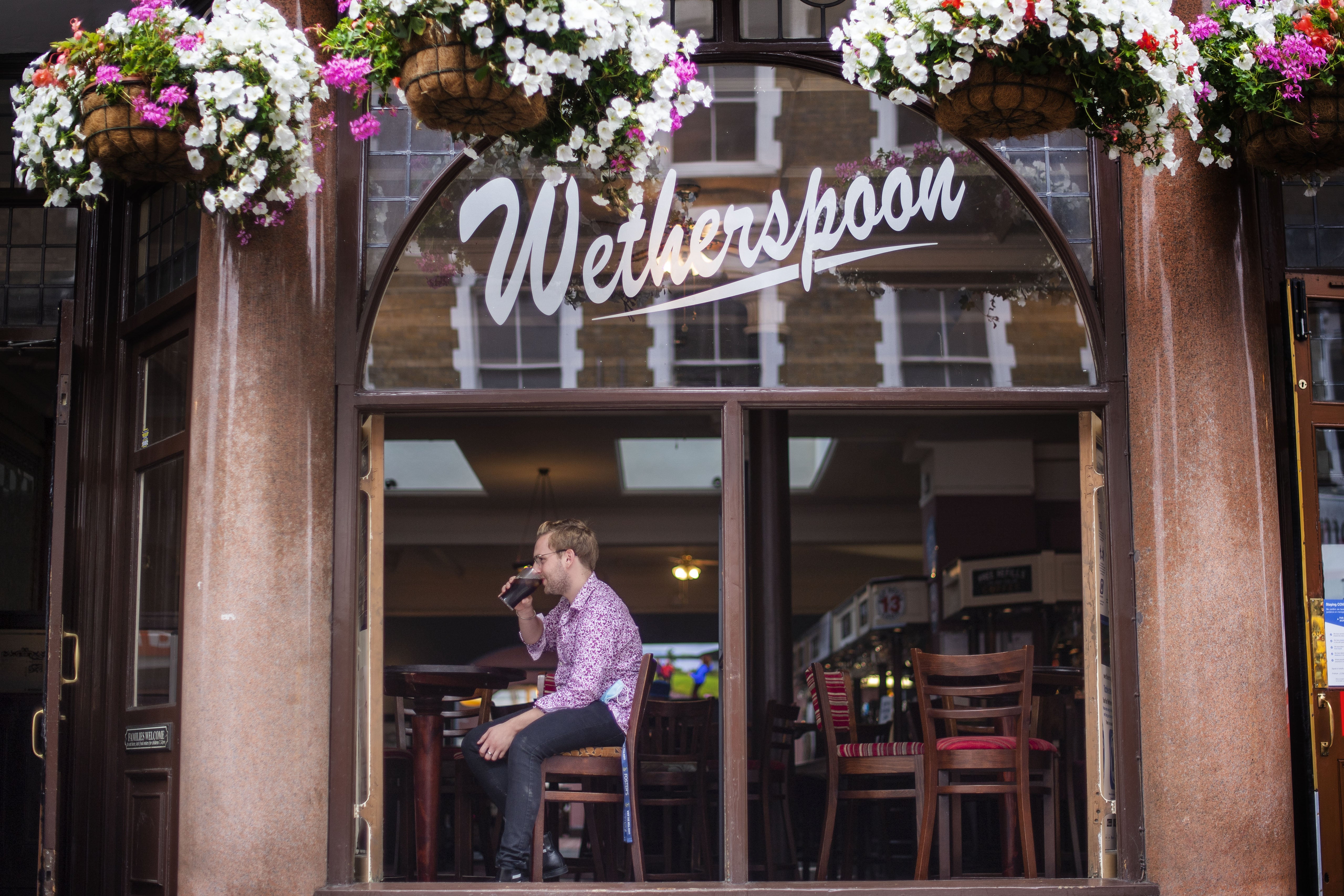Wetherspoon boss hits out at plans to use two-third pint glasses
The pub-chain founder said the proposal was ‘slightly daft’

Wetherspoon boss Tim Martin has criticised “slightly daft” proposals from academics to serve beer in two-third pint measures as he called for no further regulations to be introduced in the under-pressure pub sector.
It came as the pub giant posted a rebound in profits as surging demand offset a reduction in the group’s pub estate.
Mr Martin, chairman of JD Wetherspoon, said further regulations put forward to reduce alcohol consumption would be likely to lead to more Britons drinking at home, rather than in pubs.
He criticised a study published last month by Cambridge University academics, which called on the Government to stop serving beer in pints, but consider using two-third glasses, also called schooners.
The business founder said the proposal was “slightly daft”, suggesting that the use of schooners in Australia did not relate to “any noticeable reduction in consumption”.

“Common sense indicates that reducing glass sizes is unlikely, due to human nature, to reduce alcohol consumption in pubs, and would also have no effect whatsoever on drinks bought in supermarkets, unless container sizes in supermarkets were also, unrealistically, reduced,” he said.
Mr Martin also hit out at speculation that the Government could reduce pub and hospitality opening hours. Labour ministers have since denied that trading hours could be reduced.
“Neither of these proposals would seem to pass the common-sense test,” the pub boss said.
It came as Wetherspoon revealed that pre-tax profits jumped by 73.5% to £73.9 million for the year to July 28, compared with the previous year.
This represented a further recovery in profit for the pub firm but remained below pre-pandemic levels.
It came as revenues grew by 5.7% to £2.04 billion, driven by a 7.6% rise in like-for-like sales.
The improved rate of sales at its pubs was slightly offset by a decrease in its number of pub sites, after the group sold 18 pubs and terminated the lease on a further nine. It also opened two sites.
The group currently has 800 pubs but said it still has a long-term goal of expanding to 1,000 sites across the UK despite recently shrinking its portfolio.
Wetherspoon said it gained £8.9 million of cash from its pub sales, but booked an exceptional loss of £13.4 million in its accounts related to the pub disposals.
Bookmark popover
Removed from bookmarks